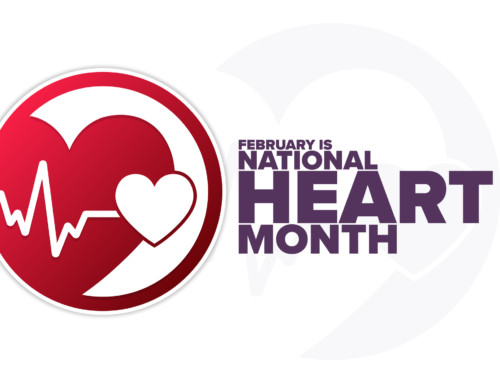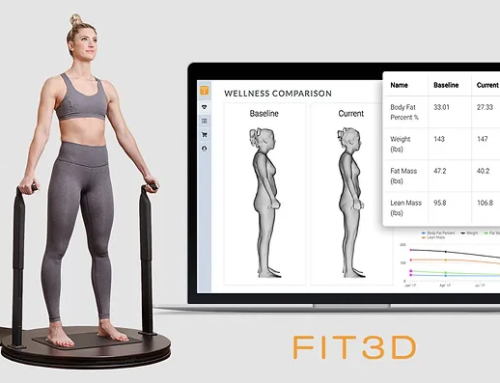 Making changes to your lifestyle can be a daunting task. Creatures of habit, most of us feel comfortable in our routines and would prefer predictability to change. But when it comes to our health, sometimes change is necessary, even if it seems overwhelming — and heart health is not something we can afford to ignore. Fortunately, there are many tips and tricks for making a seemingly enormous shift in behavior become a series of small, attainable, and rewarding goals. It all starts with being S.M.A.R.T.
Making changes to your lifestyle can be a daunting task. Creatures of habit, most of us feel comfortable in our routines and would prefer predictability to change. But when it comes to our health, sometimes change is necessary, even if it seems overwhelming — and heart health is not something we can afford to ignore. Fortunately, there are many tips and tricks for making a seemingly enormous shift in behavior become a series of small, attainable, and rewarding goals. It all starts with being S.M.A.R.T.
What Are S.M.A.R.T. Goals?
Specific
When deciding to improve our health, most of us set ourselves up for failure at the outset by making our goals too vague. We want to be “fitter,” “stronger,” or “better” at something rather than accomplish a specific task. So while we might resolve to improve our heart health, that resolution represents an ideal, not a specific goal. Decide instead on specific things you can do that will benefit your cardiovascular health and hold these up as your goals that bring you toward the ideal of improved heart health.
Example: “I want to engage in moderately strenuous exercise for at least 30 minutes per day.”
Measurable
Part of being specific means being measurable. It’s all well and good to say you’d like to run more, but what does “more” look like? Running every day, every other day, or every week? Or running for a specific length of time when you do run? If you frame your goals in a way that allows you to clearly measure whether you’ve achieved them, you’ll be able to track your progress — and take pride in your accomplishments.
Example: “I will increase the distance I run by one mile every two weeks.”
Achievable
It’s also important to set goals you know you can achieve. Success breeds confidence, which leads to further success. So while you might, for instance, want to start powering through some Olympic lifts right away, if you’ve never lifted weights before, you’re more likely to either hurt yourself pushing beyond your ability and strength or lose confidence when you can’t even raise the barbell past your chest. It’s great to dream big, but you also need to be realistic about where you are now and how much work it will take to get you where you’d like to be. If you want to improve your cardiovascular health through strength training — a proven, effective way to better your heart health — and hope to lift heavy, you should evaluate where you are currently and then create a progression of small steps, or mini-goals, with that aim in mind.
Example: “I will increase the amount of weight I can squat by five pounds every week.”
Relevant
Just as goals need to be achievable, they need to be relevant to your life. If you never run outside, deciding you’re going to become someone who runs every day, in every weather condition, might not make the most sense for your life, no matter how much it will improve your heart health. And if you work full-time, with kids and a dog at home, and already feel stretched thin, deciding you’ll exercise for an hour every single day could be setting yourself up for failure because it doesn’t align with your time and energy reserves. Your goals need to make sense for your lifestyle, ability level, and interests.
Example: “Since I love being outside, I will go for a hike three times a week.”
Time-Specific
So, you’ve set yourself on the path toward great cardiovascular health through a series of specific, measurable, achievable, and relevant goals. But have you set a timeline for them? If you haven’t, you might find weeks go by without your making progress, since it’s easy to put things off for some future date when we aren’t being held accountable by a deadline. By creating a timeline for each of your goals, you can keep yourself moving forward, feeling motivated, and enjoying success, consistently.
Example: “I will sign up with a personal trainer this week, and will see them once a week moving forward.”
Why Exercise for Heart Health?
Exercise offers the following benefits for cardiovascular health and cardiac event risk factors:
- Increase in exercise tolerance
- Reduction in body weight
- Reduction in blood pressure
- Reduction in bad (LDL and total) cholesterol
- Increase in good (HDL) cholesterol
- Increase in insulin sensitivity
Dream S.M.A.R.T. Before You Dream Big
Having goals to work toward helps give life meaning, and achieving them makes us feel good. Allow yourself the pleasure of both forward momentum and success, in all aspects of your life, by setting goals like a pro.





